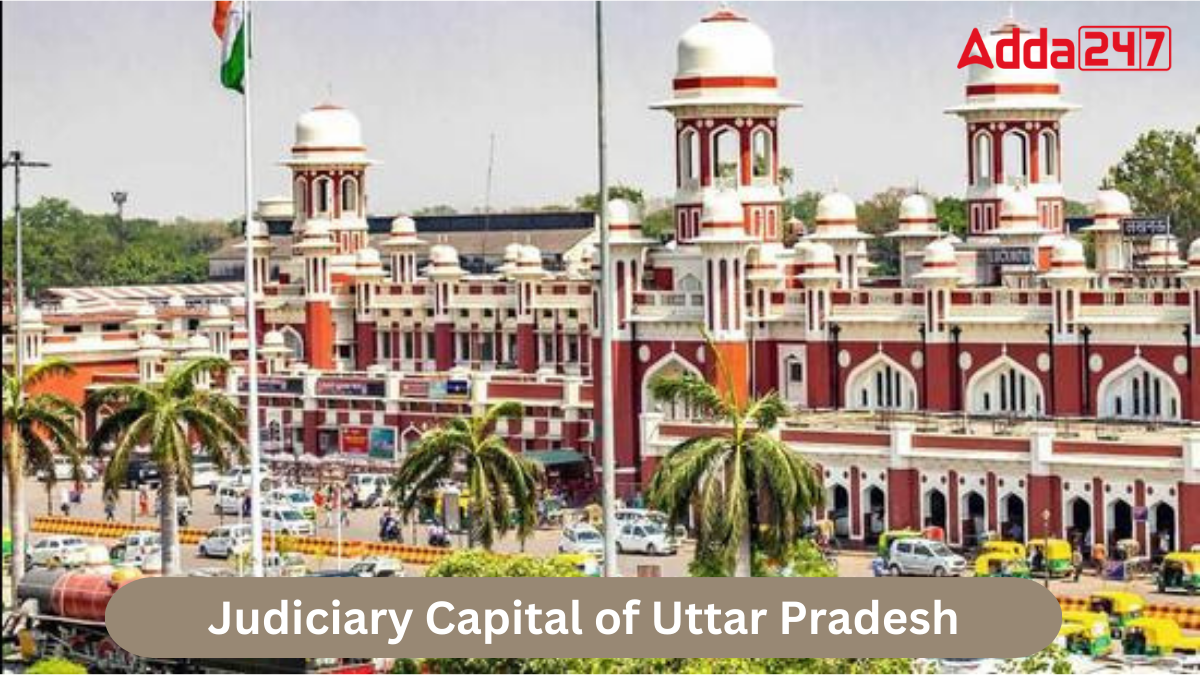Uttar Pradesh, India’s fourth-largest state, plays a crucial role in the nation’s history, culture, politics, and economy. Its rich heritage, numerous religious sites, and historical landmarks make it a unique part of India. Although Lucknow is well-known as the state’s administrative capital, the concept of its judicial capital is less familiar. This article will delve into the judicial capital of Uttar Pradesh, exploring its historical importance and the reasons behind its designation.
An Overview of Uttar Pradesh
Uttar Pradesh, the most populous state in India with over 241 million residents, is located in northern India. It covers 243,286 square kilometers, making it the fourth-largest state by area. Bordered by several states and Nepal, it includes major rivers like the Ganges and Yamuna, converging at the Triveni Sangam in Prayagraj, a significant Hindu site. The state is divided into 18 divisions and 75 districts, with Lucknow as the capital and Prayagraj serving as the judicial capital.
Number of Districts in Uttar Pradesh
Uttar Pradesh is divided into 75 districts, which are organized into 18 divisions. The state’s largest city and capital is Lucknow, which also serves as its largest metropolitan area. These districts and divisions play a crucial role in the administrative and governance structure of Uttar Pradesh, facilitating efficient management and development across the state.
Which is the Judiciary Capital of Uttar Pradesh?
The judiciary capital of Uttar Pradesh is Prayagraj, a historically rich district formerly known as Allahabad. This city is significant in the state’s legal and cultural landscape.
Why is Prayagraj serve as the Judiciary Capital of Uttar Pradesh?
The establishment of the Allahabad High Court in 1868 was a pivotal moment for Prayagraj, solidifying its status as the judiciary capital of Uttar Pradesh. The court’s formation made Prayagraj a key center for legal proceedings and judicial administration in the state.
Historical Background of Prayagraj
Prayagraj’s history stretches back to ancient times, making it one of the oldest continuously inhabited cities in the world. The city’s historical significance was further cemented when, in 1858, the East India Company formally transferred control of India to the British Crown in a ceremony held in Minto Park, Prayagraj. This event marked the beginning of Prayagraj’s role in British administrative and judicial affairs.
Cultural and Religious Significance of Prayagraj
Prayagraj is renowned for its cultural and religious importance. It is famously known for the Kumbh Mela, one of the largest religious gatherings globally, which takes place at the confluence of the Ganges, Yamuna, and the mythical Saraswati rivers. The city’s role in hosting this major event highlights its deep-rooted cultural and spiritual heritage.




 Which River is known as the Lifeline of ...
Which River is known as the Lifeline of ...
 Which Country is known as the Tea Garden...
Which Country is known as the Tea Garden...
 Which Country is known as the Sugar Bowl...
Which Country is known as the Sugar Bowl...








